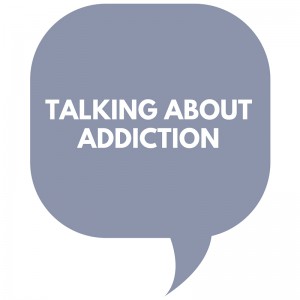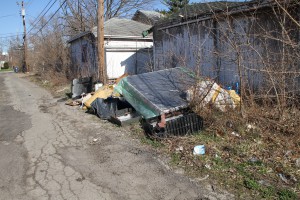“Read All About It” - Research Findings Published!
By Bridget Murphy, July 21 2016
Reasons why I am proud to write this blog post...
Reason 1: My former colleagues (and friends) at The University of Arizona, Southwest Institute for Research on Women (UA SIROW) (UA SIROW) have been leading the efforts on the national evaluation of Juvenile Drug Courts and Juvenile Drug Courts blended with Reclaiming Futures (JDC/RF). UA SIROW collaborated with Chestnut Health Systems and Carnevale Associates, LLC to implement a comprehensive evaluation that included data from Juvenile Drug Courts, Juvenile Drugs Courts blended with Reclaiming Futures, and non-justice related intensive adolescent outpatient programs. The purpose was to examine processes, outcomes, and costs.




 ter weather is starting to break. Snow showers and subzero temperatures are replaced with rain showers and flowers. For some neighborhoods in Dayton, Ohio the break in the weather brings light to a major issue. The issue of illegal dumping is highly visible once the piles of snow have melted away. In some instances, neighborhoods have been left with tons of trash and debris. For several blocks certain alleyways can be found with couches, mattress, appliances and construction waste.
ter weather is starting to break. Snow showers and subzero temperatures are replaced with rain showers and flowers. For some neighborhoods in Dayton, Ohio the break in the weather brings light to a major issue. The issue of illegal dumping is highly visible once the piles of snow have melted away. In some instances, neighborhoods have been left with tons of trash and debris. For several blocks certain alleyways can be found with couches, mattress, appliances and construction waste. The
The  This Fall, the Adler School
This Fall, the Adler School  How do you bankrupt a brimming system of incarceration that is perversely incentivized to grow? According to New Orleans Parish Sheriff Marlin Gusman, “you have to go to the source, and whether the source is education or whether it’s legislation, you really have to go to the source.” Gusman provided an upstream suggestion at the Loyola University New Orleans’ event,
How do you bankrupt a brimming system of incarceration that is perversely incentivized to grow? According to New Orleans Parish Sheriff Marlin Gusman, “you have to go to the source, and whether the source is education or whether it’s legislation, you really have to go to the source.” Gusman provided an upstream suggestion at the Loyola University New Orleans’ event,  Over in The Atlantic Cities, Richard R. Buery Jr. of the
Over in The Atlantic Cities, Richard R. Buery Jr. of the 
 Those working with "crossover youth" in the juvenile justice and child welfare systems should consider applying for the Center for Juvenile Justice Reform's
Those working with "crossover youth" in the juvenile justice and child welfare systems should consider applying for the Center for Juvenile Justice Reform's  The workshop, titled A Toolkit for Strength-Based Recovery Networks: Engaging and Activating the Positive with Diverse Young People, Families and Communities, takes place Nov. 17, 2011 from 9 a.m. - 4:30 p.m. EST at Everett Station (Weyerhaeuser Room) -- 3201 Smith Ave. Everett, WA 98201.
The workshop, titled A Toolkit for Strength-Based Recovery Networks: Engaging and Activating the Positive with Diverse Young People, Families and Communities, takes place Nov. 17, 2011 from 9 a.m. - 4:30 p.m. EST at Everett Station (Weyerhaeuser Room) -- 3201 Smith Ave. Everett, WA 98201.
